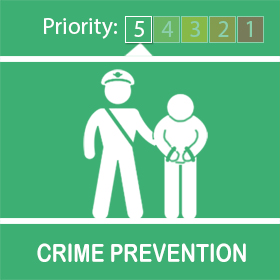 Criminals are exploiting the COVID-19 pandemic to try and get their hands on your money and personal information. To date, Action Fraud has received reports from 2,378 victims of Coronavirus-related scams, with the total losses reaching over £7 million.
Criminals are exploiting the COVID-19 pandemic to try and get their hands on your money and personal information. To date, Action Fraud has received reports from 2,378 victims of Coronavirus-related scams, with the total losses reaching over £7 million.
How you can protect yourself from Coronavirus-related scams. There are some simple steps you can take that will protect you from the most common Coronavirus-related scams. Here’s what need to do:
1 – Watch out for scam messages
Your bank, or other official organisations, won’t ask you to share personal information over email or text. If you receive an email you’re not quite sure about, forward it to the Suspicious Email Reporting Service (SERS): report@phishing.gov.uk
2 – Shopping online
If you’re making a purchase from a company or person you don’t know and trust, carry out some research first, for example, by checking to see if others have used the site and what their experience was. If you decide to go ahead with the purchase, use a credit card if you have one, other payment providers may not provide the same protection.
3 – Unsolicited calls and browser pop-ups offering tech support
Never install any software, or grant remote access to your computer, as a result of a cold call. Remember, legitimate organisations would never contact you out of the blue to ask for financial details such as your PIN or full banking password.
NHS Test and Trace scams – The NHS Test and Trace service plays an important role in the fight against coronavirus and it’s vital the public have confidence and trust in the service. However, we understand the concerns people have about the opportunity for criminals to commit scams.
What you need to know:
Contact tracers will only call you from the number 0300 013 5000. Anyone who does not wish to talk over the phone can request the NHS Test and Trace service to send an email or text instead, inviting them to log into the web-based service.
All text or emails sent by NHS Test and Trace will ask people to sign into the contact tracing website and will provide you with a unique reference number. We would advise people to type the web address https://contact-tracing.phe.gov.uk directly into their browser, followed by the unique reference number given to you, rather than clicking on any link provided in the message.
The NHS Test and Trace service will never ask you:
-
to dial a premium rate number to speak to them (for example, those starting 09 or 087)
-
to make any form of payment or purchase a product or any kind
-
for any details about your bank account
-
for your social media identities or login details, or those of your contacts
-
for any passwords or PINs, or ask you to set up any passwords or PINs over the phone
-
to download any software to your PC or ask you to hand over control of your PC, smartphone or tablet to anyone else
-
to access any website that does not belong to the government or NHS


